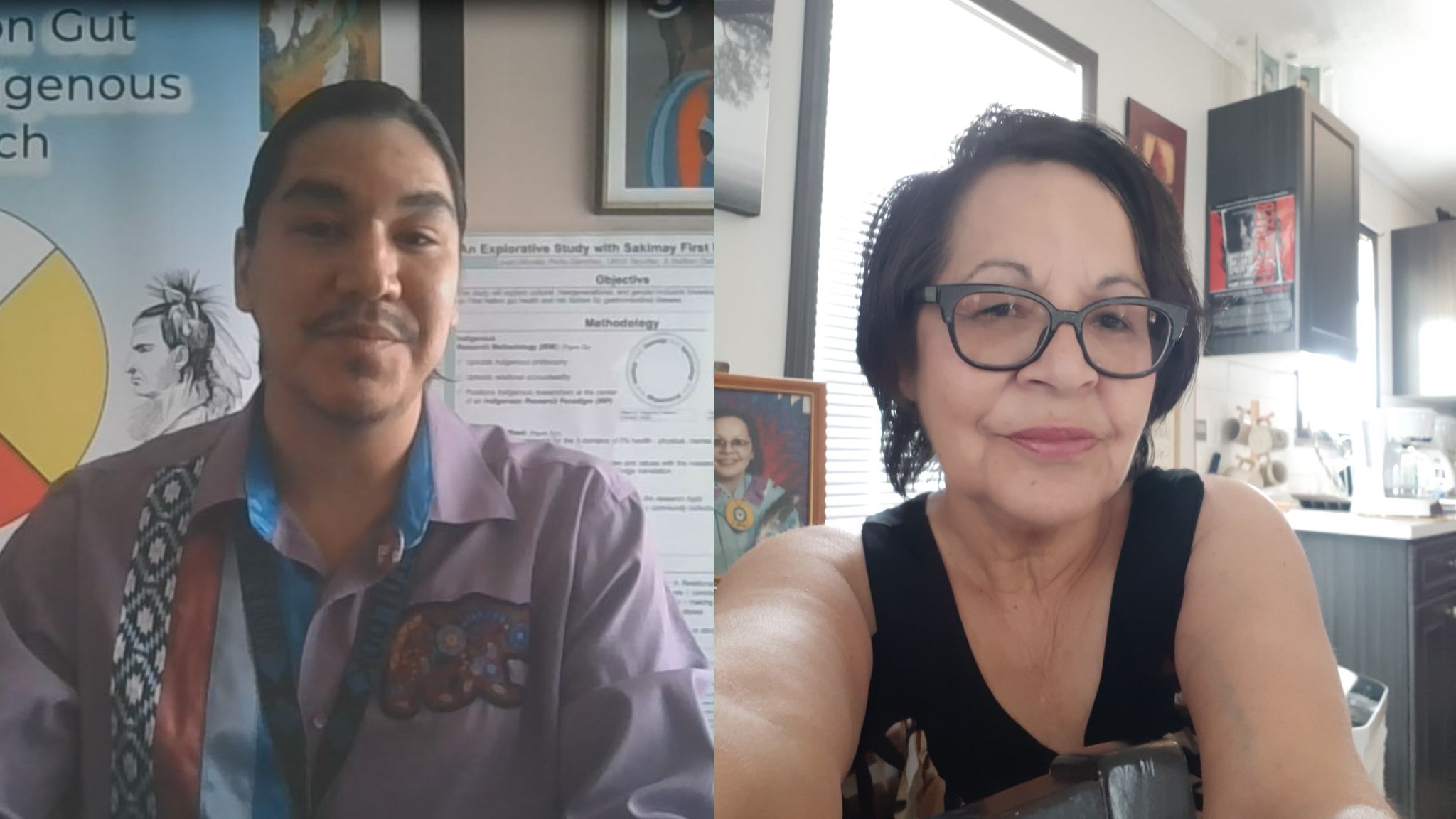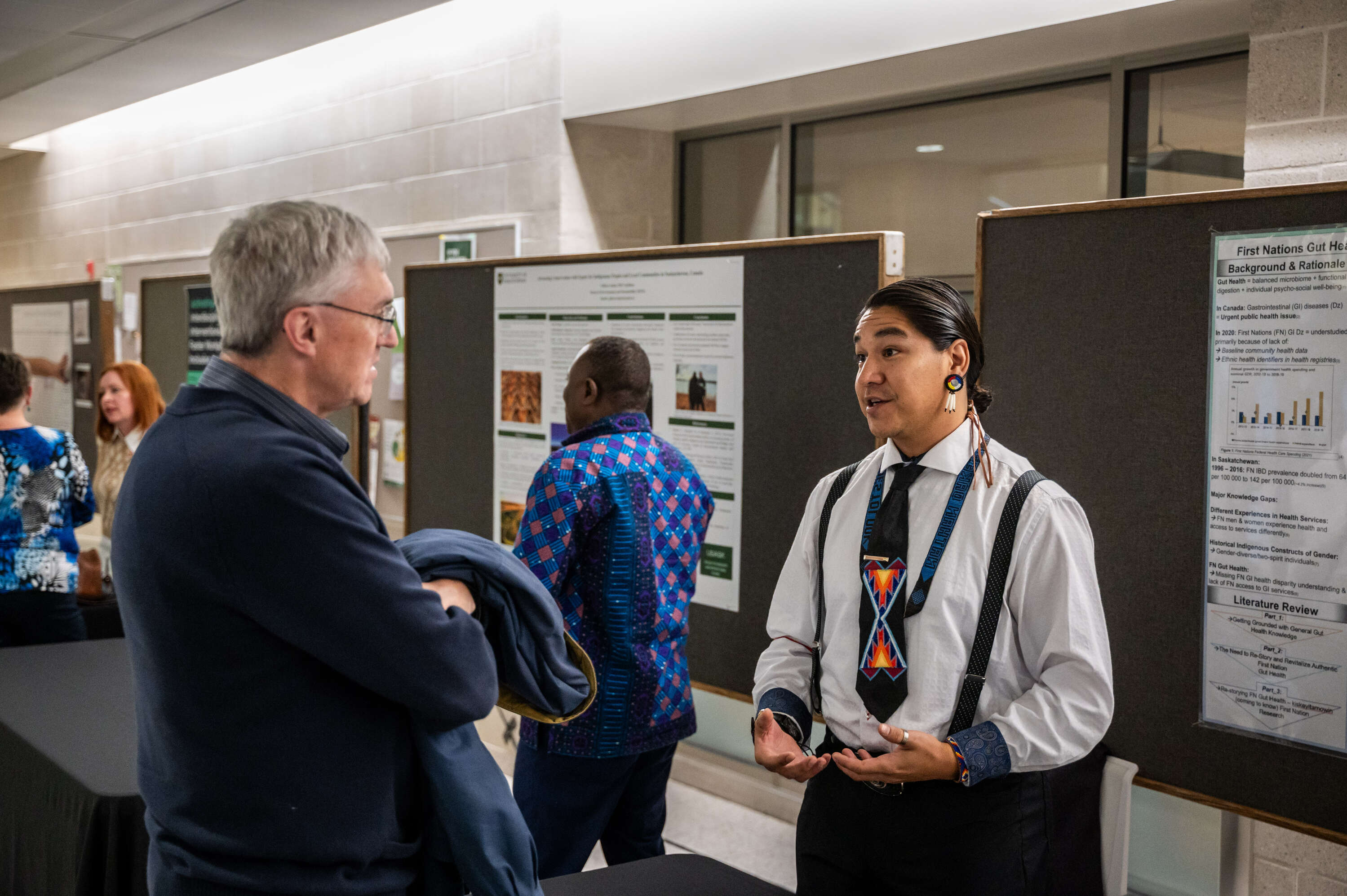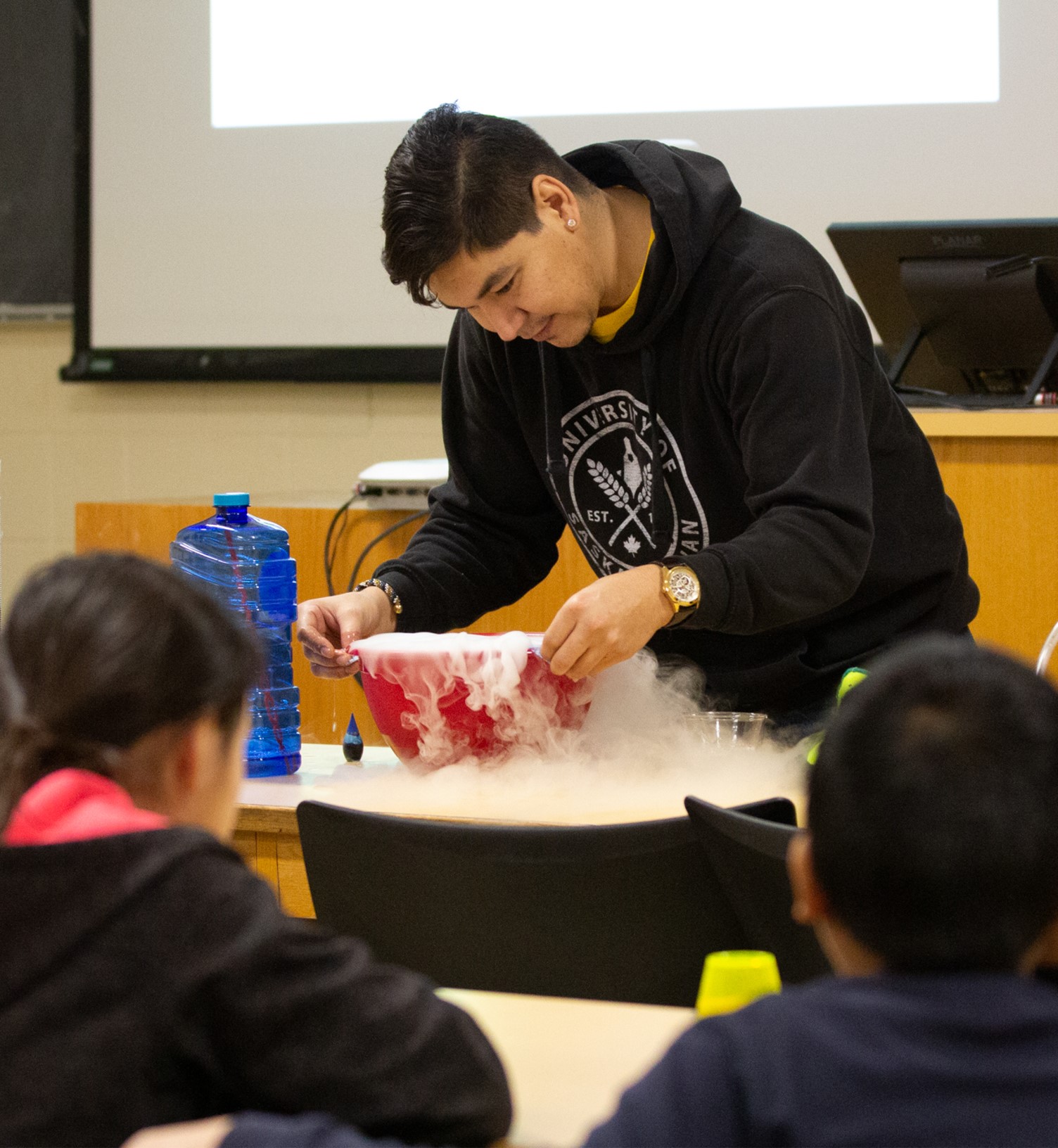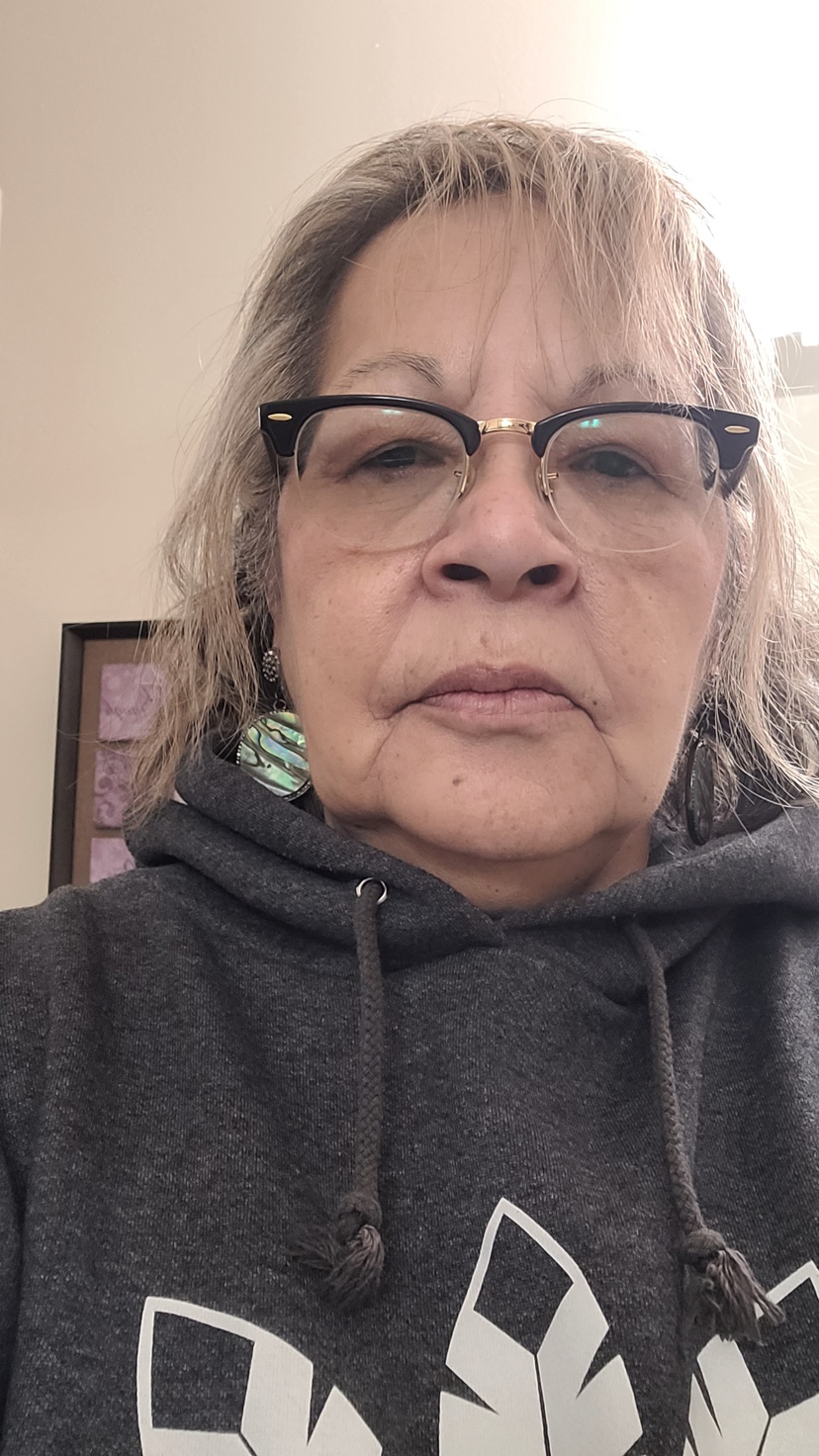
IAW 2024: Putting community first
Each year, the University of Saskatchewan (USask) recognizes the achievements of Métis, First Nations and Inuit students, staff, faculty and alumni during Indigenous Achievement Week (IAW). The College of Graduate and Postdoctoral Studies (CGPS) is proud to celebrate two exceptional graduate students receiving Indigenous Student Achievement Awards this week: Nathan Oakes (Department of Community Health and Epidemiology) and Doris Wesaquate (College of Kinesiology).
By Kassidy Guy
Nathan Oakes, 2024 Indigenous Student Achievement Award winner, is from Piapot First Nation on Treaty 4 Territory. Growing up, Oakes spent much of his time in diverse community outdoor settings in-community and describes the environment and cultural circles as drivers for health and education.
From an early age, Oakes was involved in diverse camps, mentorship opportunities, sports, and ceremony, all of which has contributed to his academic aspirations today.
When Oakes first entered university, he intended to pursue medicine, but while achieving his B.Sc. in Physiology and Pharmacology, he determined that working on an egalitarian level with community suited him better. “I wanted to work with community and individuals in a practice that provided me with more flexibility where I could meaningfully give back to what people needed and desired, especially concerning Indigenous philosophy.”
Oakes went on to achieve his Master of Science in Public Health, where he was introduced to Indigenous community-based research, and he gained confidence working with the community.
After completing his master’s, Oakes decided to continue his studies through the Doctorate in Community and Population Health Sciences program. Oakes’ research will utilize an Indigenous methodology to qualitatively explore First Nations' gut health with a Treaty 4 community in Saskatchewan. Oakes' study will emphasize on cultural, intergenerational, and gender-diverse perspectives.

As part of his research, he’s begun building a relationship with the community with the intent of collaborating with community leaders and members to learn together. Throughout the relationship-building phase, Oakes identifies the need to ensure the protection of the autonomy of participants, community knowledge, and community resources.
As his research progresses, Oakes intends to prioritize communications and feedback systems so that the project remains community-driven, and results in positive impacts for community knowledge-users down the line.
“This award is an honor to all my relations, from academia, my childhood upbringing, mentors, and colleagues that I’ve worked with from past to present. Without the positive things I’ve been gifted from my relations, I would not be here. My family remains by my side, and my culture has always been what heals and drives me to find meaning in my work.”

Doris Wesaquate, 2024 Indigenous Student Achievement Award winner, is a mother, grandmother, and lifelong learner from Piapot First Nation. She has previously achieved a B.A in Indian Studies, a B.Ed after-degree in elementary Indian education, and an Indian Communications certificate through the University of Regina and the First Nations University of Canada. Wesaquate earned her M. Ed from the USask College of Education in 2018.
Wesaquate is currently pursuing a PhD in Kinesiology, with a focus on Indigenous women’s health. Throughout her life, she has witnessed many loved ones battle with autoimmune illnesses, “I’ve lost four sisters to autoimmune diseases. I’m not sure why that happened, and I’d like to find out.”
Wesaquate, herself, copes with rheumatoid arthritis and fibromyalgia, as well as chronic depression and anxiety, “I believe it has a connection to both my parents being in residential school and the trauma that they lived with.”
In her research, Wesaquate studies the impact of trauma and stress on the body, with the hopes of uncovering an answer to a widespread community problem. “The reason I got into the PhD program was because there’s so many families that are going through grief and trauma and dealing with major health issues,” she said, “The next generations are also experiencing disease early, and I think trauma has something to do with it.”
As she continues towards her PhD, Wesaquate hopes to publish her findings and tell her story in a good way, bringing a much-needed Indigenous perspective to the academic conversation.
Wesaquate’s family provided emotional support throughout her studies, and she has also found inspiration from the Indigenous academic community. The SK-NEIHR, or natawihowin and mamawiikikayaahk Research, Training, and Mentorship Networks, have served as a motivator for Wesaquate. “[SK-NEIHR] had a national gathering a few years ago, and they brought students from across Canada. To see all these Indigenous people under one roof…it was really motivating to listen and observe.”
Doris’ husband passed in July 2020, and he sparked the idea to pursue a PhD, “That’s when I inquired about scholarship opportunities here,” she said.
Another source of support for Wesaquate has been her connection to her culture. “My parents never shared that with us because of residential schools, so now I’m learning these ways and prayer plays a major part in my daily life. I rely on our Creator and I believe that He gets me through the days.”
“[This award] really took me by surprise,” said Wesaquate, “I’m still sort of in shock.”
The Indigenous Student Achievement Awards Ceremony takes place on Wednesday, March 6 at Marquis Hall, where Nathan Oakes, Doris Wesaquate, and other exceptional Indigenous scholars will be honoured for their academic achievement, community engagement, leadership, research, and resiliency.
To learn more about IAW and get involved, visit https://spotlight.usask.ca/indigenous-achievement-week/index.php#top.
Together, we will work towards Truth and Reconciliation. We invite you to join by supporting Indigenous achievement at USask.
